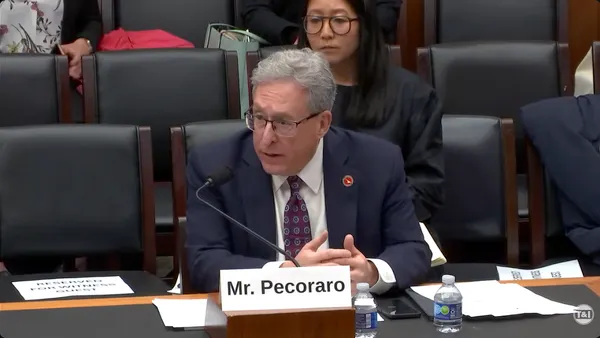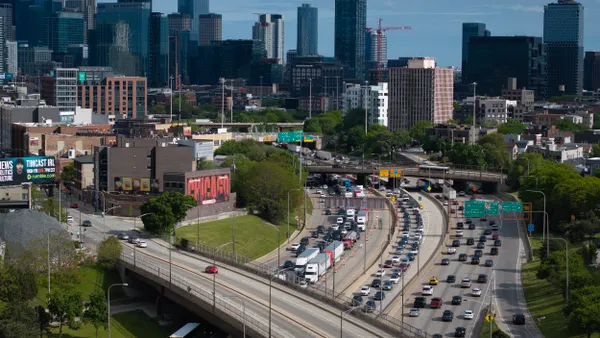Dive Brief:
- A group of companies and associations has formed the Partnership for Transportation Innovation and Opportunity (PTIO) to advance autonomous vehicle (AV) and other transportation innovations while supporting the American workforce. The group will identify new opportunities and devise solutions for challenges that develop from AVs.
- PTIO has three goals for its first six months of operation: gather expertise, concerns and desires from diverse stakeholders; begin developing a comprehensive, data-based understanding of how AVs will affect the future of work; and begin fostering awareness of career opportunities during the transition to an AV-enabled economy.
- PTIO members include automakers Daimler, Ford and Toyota; ride-share companies Lyft and Uber; mobility innovator Waymo; delivery company FedEx; and trade groups such as the American Trucking Associations.
Dive Insight:
As with any major innovation, the advent of AVs has been met with some skepticism. A lingering concern is that driverless vehicles will eliminate the need for humans in existing jobs, particularly in the transportation and supply chain fields. U.S. Sen. Gary Peters, D-MI, has spoken out on the need to give more thought to the impact of AVs on the workforce, but groups like PTIO work to show that people will still be needed in the workforce in conjunction with innovations. They do this while acknowledging that the workforce will need to evolve and embrace new opportunities.
The American Trucking Associations-affiliated magazine addressed automation concerns earlier this month in a column entitled "The Future Is Autonomous, Not Jobless," which sought to allay workers' fears and encourage industry adaptation to, instead of abandonment of, AV technologies. Accompanying articles highlighted the trucking industry's gradual, but not immediate, transition to AVs as well as opportunities for systems that assist drivers but do not replace them.
Fears about AVs driving human obsolescence aren't simply limited to long-haul truckers; AVs and their affiliated technological advancements will touch a huge swath of sectors in the economy in some way because American society is so ingrained with the efficiencies of transporting people and goods via vehicle.
Former U.S. Secretary of Commerce Penny Pritzker told attendees at the recent Chicago Forum on Global Cities that 75% of Americans worry that automation and artificial intelligence will negatively affect their or their loved ones' jobs. "People do not feel that the path for them is clear," Pritzker said, explaining that adjusting to massive technological shifts is not easy. That especially holds true in non-urban areas where citizens might not have as much regular exposure to certain technologies as those in city centers, where such innovations often are launched.
AVs are very much an evolving industry and cities along with a plethora of stakeholders still are trying to figure out all of the potential impacts. Like PTIO, other groups are emerging at the beginning of the trend to get ahead of potential problems that could arise.
Besides impacting jobs, human safety is another concern, as indicated in a recent survey in which 59% of respondents said AVs are not as safe as vehicles driven by humans. A coalition of dozens of stakeholders took on safety concerns earlier this year by sending a letter to U.S. Transportation Secretary Elaine Chao requesting national oversight of AVs. Plus, stakeholders including the U.S. Department of Transportation gathered in March for a public listening summit on AV policy, which had a heavy focus on safety.
The increasing attention to AVs and related policies, along with the rapidly-growing number of AV-focused groups like PTIO, shows a public thirst for knowledge about the new technology and the desire to work out sticking points before driverless vehicles become prevalent.











